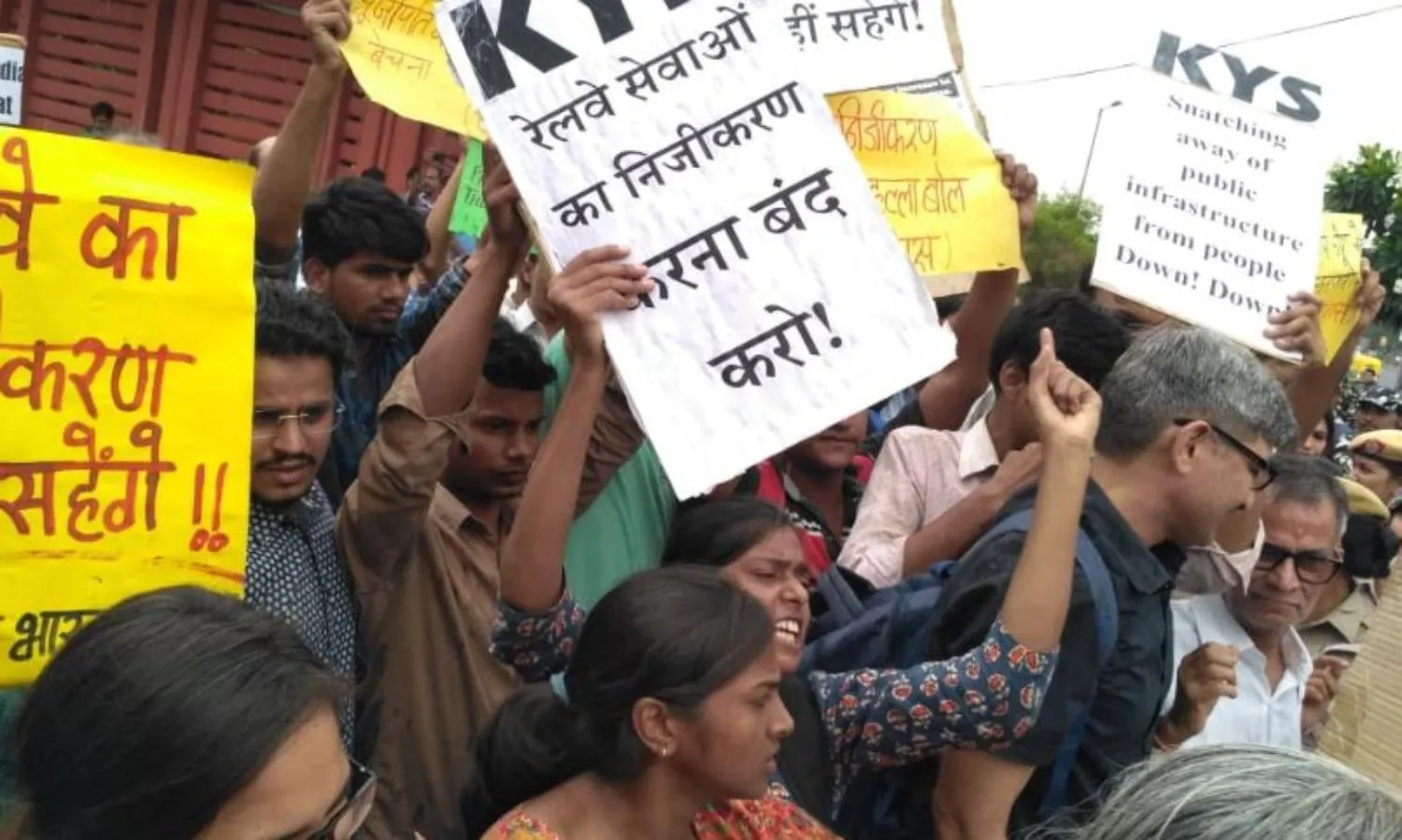'Snatching Away Public Infrastructure': Students Protest with Railway Workers
'If they perceive they are not making a profit, they will pull out of the venture'

NEW DELHI: On Tuesday, students from several universities across the capital held a demonstration in front of Rail Bhawan in solidarity with railway workers. Contesting the privatisation of railway services – mainly the entry of profit-seeking commercial operators – the protestors argued that such moves will make rail travel unaffordable to most.
The demonstration follows on recent protests by many railways workers’ unions against a series of commercialisation measures proposed by the Ministry of Railways, including its 100-day “action plan” for the railways.
One of the protestors, Sachin, told The Citizen how “the railway is an important part of our lives. For many like us, it is the most affordable means of travelling. I come from Uttarakhand where there are multiple trains with only two general coaches – the rest of the coaches are reserved.”
A steady rise in ticket prices has been an important concern. Sachin told us “Since 2014 I have been travelling in a general coach. Tickets that once cost ?70 now cost me ?110. They have hiked the rates so much, but the media doesn’t come out with any news on it.”
Similar concerns were raised by another protestor, Harish Gautam. “The move towards privatising the railways will hit the economically weaker sections the most. The condition of Indian Railways is bad as it is. One often sees passengers sleeping in places meant for luggage. But instead of improving the conditions for passengers, the government is peddling privatisation as the solution.”
Sachin pointed out that a committee chaired by NITI Aayog member Bibek Debroy presented a report in June 2015 that paves the way for the railways’ increasing privatisation and commercialisation.
That report suggests multiple measures for inviting private participation in the railways. One instance is its recommendation that the government “disinvest” or sell off assets in sectors which are not “core” to the railways’ functioning, such as education or healthcare for those involved in providing railway services.
Instead it recommends that such services be contracted out to privately owned businesses paid using public money. The Rail Ministry recently announced that the making of trains would also soon be contracted out to commercial players.
Protestors also brought up the case of the Delhi-Lucknow Tejas Express, which is soon set to be run for profit by a private operator. Many expressed the fear that permitting the entry of commercial players would mean the end of the railways as a public service lifeline.
Highlighting the withdrawal of Reliance Infrastructure after suffering losses in the “public-private partnership” for the Delhi Airport Metro Project, Sachin told The Citizen that “introducing private players into the scenario can put an important public service in serious jeopardy. If they perceive they are not making a profit, they will pull out of the venture.”



